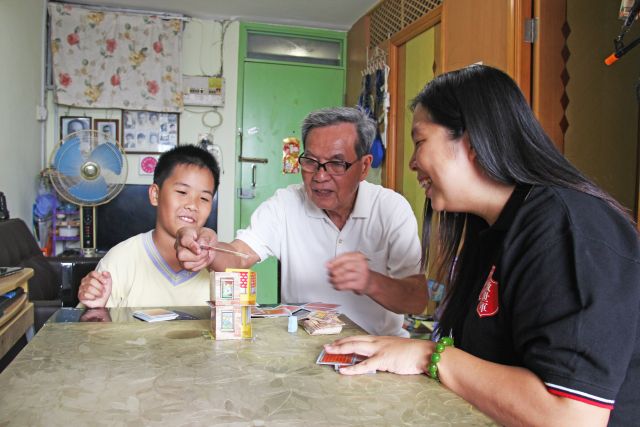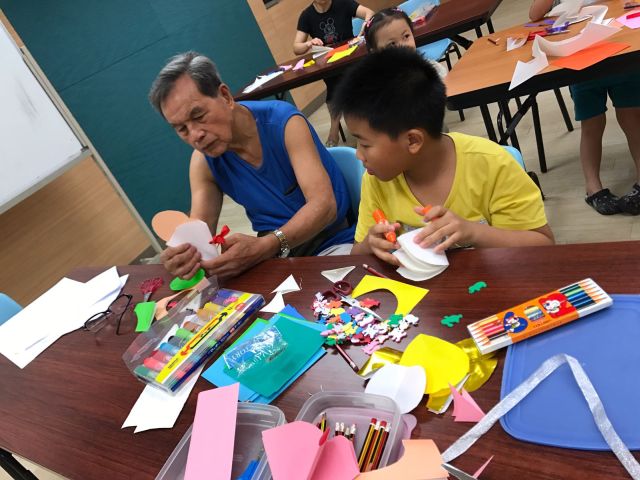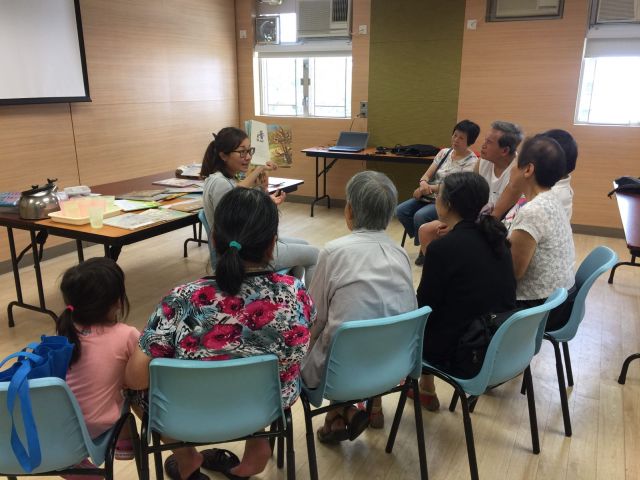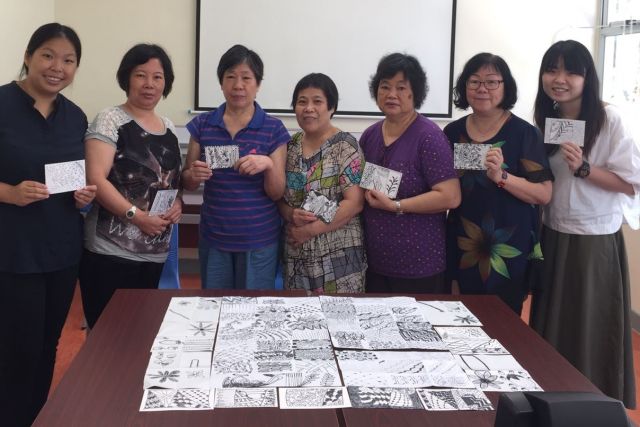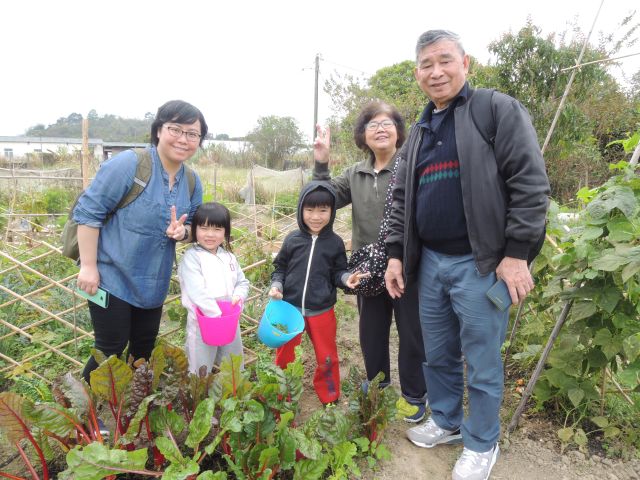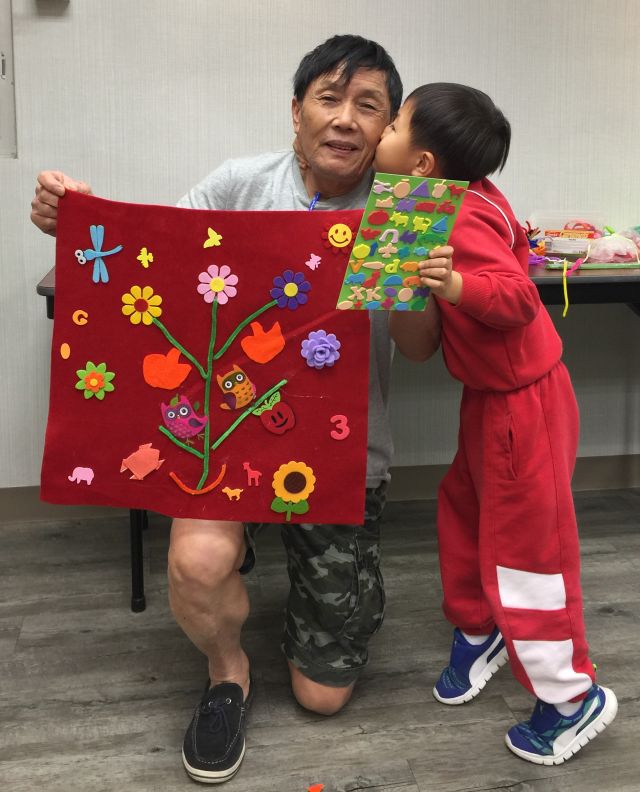Story
Grandparenting Made Easy Relieving Tension between Grandparents and Grandchildren
Grandpa Chan has worked hard most of his lives. At his 70s, he thought he could enjoy his twilight years, and it never crossed his mind that he would have to start his life all over again.
Chan’s son has divorced. After Chan’s wife had passed away, he could but only take care of his grandson by himself. He was unfamiliar with all the new systems, values and trends of the society. Traditional authoritarian parenting style only drove his grandson further away from him. How should he communicate with the younger generation? How to guide his grandson as he grows up? When feeling helpless, he found The Salvation Army.
The ideal retirement lifestyle of Grandpa Chan was to enjoy himself, going yum-cha and playing chess every day. But alas, his son was divorced. Chong (alias), his five-year-old grandson, was put under his grandparents’ care. Three years ago, Chong’s grandmother passed away due to illness, leaving behind the old man and the young boy.
Generation Gap
In the past, Grandpa Chan used to work early in the morning until late at night. His wife took care of everything in the family, so he did not have to prepare meals and teach the children. All of a sudden, he had to raise his grandson alone. Even though he was worried, he gritted his teeth and said, ‘I must take good care of my grandson.’ To follow the learning progress of Chong, Grandpa Chan taught himself English for two hours and prepared for lessons in advance every night, so as to help his grandson with his homework and revision the following day. However, since he did not know very well the teaching procedures and homework instructions, not only did he worry too much, but he also argued with Chong.
Whenever Chong played video games, Grandpa would be worried that he was not motivated to learn. He would loudly scold him and urge him to study. Chong would then feel wronged as he simply wanted to take a break and have some fun. As the grandfather and the grandson could not communicate effectively, misunderstandings accumulated. The generation gap put them miles apart.
The Salvation Army happened to visit the Chans. Grandpa Chan learnt about the Grandparent Raising Grandchildren Family Support Project, and mastered effective communication skills with his grandson.
Stay Up-to-date
From the grandparenting lessons of the Project, Grandpa Chan realized that nowadays we are encouraged to positively reason with the children. ‘I was wrong to have lost my temper in the past,’ Grandpa admitted. ‘I should think about why he would do it, and let him explain without interrupting him. Also, I should encourage him to share his views, then slowly help him solve the problems and analyse the consequences.’ Now, Grandpa Chan and the other ‘elder buddies’ participating in the Project always share their experience in grandparenting and learn from one another. He thanks the parent volunteers for patiently explaining the education system, such as the different examinations in primary schools, points to note in choosing a secondary school, etc. All these help put Grandpa Chan’s mind at ease.
In addition to taking care of practical needs, emotional satisfaction is also essential to maintaining good relationships. Salvation Army social workers pay regular home visits to Grandpa Chan and Chong, guiding them to play family games and inviting them to join outing activities of the Centre. All these may help the Chans create more happy memories. Also, a series of art workshops help Grandpa to release his emotions and stress.
‘Grandpa is very gentle now. He hasn’t yelled at me recently. He also trusts me more now,’ said Chong. As he understands Grandpa’s goodwill, he is more self-disciplined in his studies and helps Grandpa out by doing housework now. Grandpa said they have become much closer and more intimate. ‘I do everything just for him (Chong). I don’t ask for anything in return. I’ll be relieved as long as he can grow up normally.‘ When asked to give a score for this ‘love’, Chong said, ‘I will give Grandpa full marks. I’ll take care of him when I’m 18 years old!’
Recognise Grandparents’ Contribution
Many working parents or single parents entrust their children to the elder generation. However, it is not easy for these grandparents to keep abreast of the times. Different parenting styles, values and communication methods often result in conflicts among the three generations.
Ms Grace Wong, Salvation Army social worker suggests that family members calmly communicate, listen to each other’s opinions and express theirs in order to reach a consensus, so as to understand the grandparents’ thoughts, health condition and role. She also reminds parents, ‘Parents may put their mind at ease to have the grandparents instead of domestic helpers or caretakers take care of their children. Grandparents always act for the good of their grandchildren and they are willing to take care of the children unconditionally. Parents should try to step into the grandparents’ shoes and be more understanding and caring, adjust to the most suitable parenting style together and recognise the grandparents’contribution to the family. Support to the elderly such as sharing of peer parents and guidance by social workers are the keys to more effective grandparenting. An old Chinese saying goes, “An elder is a family’s greatest treasure.” Passing on the perseverance and selflessness of the older generation will surely benefit their children and grandchildren.’
The Grandparent Raising Grandchildren Family Support Project
This Project provides support for grandparents who take care of their grandchildren studying in primary schools or younger, as well as their families. Grandparents are equipped with effective ways and skills to discipline children; counselling for three generations, home visits, family activities, de-stress workshops and so on are provided. The Project aims to make grandparents enjoy the fun of bringing up their grandchildren, and to enhance relationships among the three generations. The Project is being implemented in Tung Chung, Wong Tai Sin and Kwai Tsing. Since 2016, 160 families have taken part in the Project. The average age of participating grandparents is 68, with the eldest being 90 years old.





